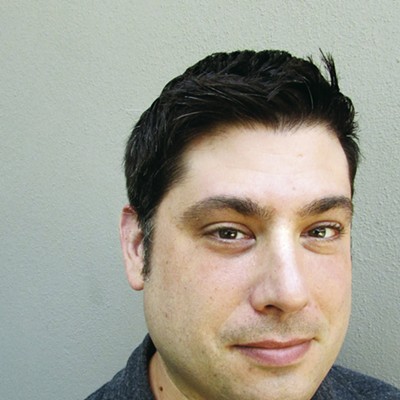Fremin says the recent increases in crime may reflect more residents' post-9/11 willingness to report crime rather than a true hike. Yet, like every other substation in the city, the 150-officer Fondren outpost is understaffed, Fremin says. But the upgrade from storefront status at least means having a gang unit of its own.
The sergeant and seven officers of the Fondren gang unit often have to try to crack down on apartment gangs without help from managers. Fremin says that is sometimes because managers have been threatened.
Adrian Garcia, the mayor's anti-gang office director, credits successes to federally funded programs targeting the Fondren Southwest section loosely known as the Gulfton Ghetto. He concedes the area still has a gang presence.
"I would like to think that gangs could be eradicated, but I would be lying," he says.
His office looked at gang hotspots throughout the city and targeted the Gulfton area, a roughly three-square mile tract packed with 70,000 people, many of them recently arrived immigrants from all over the world. Garcia calls it "somewhat of an Ellis Island."
Officials implemented the Weed and Seed project. Like the name suggests, it tries to replace criminal activity with positive, community-oriented programs. These include a program called United Minds, a leadership program for teens, which Garcia says builds self-respect. One of their field trips was a trip to the city morgue, where at-risk youth got a close-up view of the effects of gang violence.
The office also targeted the gang-infested Los Americas apartment complex, using Weed and Seed money to build an elementary school on the property. Garcia says Los Americas is now a model complex. Program funds also helped build the Gulfton Community Learning Center, which offers free computer training. There's a computer lab at a local park, an English as a Second Language workshop and a domestic violence outreach unit. In five years, the seed program pumped $800,000 into the former Gulfton Ghetto.
He says these advances, accomplished without "heavy-handed police tactics," restored a sense of safety and community to an area that "was never engineered for family life."
Now, he says, "You'll see life going on."
Penciled on a wall is the stark message: "Demons get out of this and these apt. All of them in the blood of Jesus." The warning waits just outside an abandoned apartment in the condemned Southwest Gardens complex. It's not clear if the demons ever left the West Airport Road complex, but the tenants did. The city forced them out in August, two months after a fire gutted nine units and years after owners failed to clean up dangerous conditions.
Southwest Gardens is a ghost town of some 90 units that exist as a reminder of how bad things can get in Fondren Southwest. Located about 100 yards from a church playground, the complex was a Galleria of drugs and prostitution, according to city officials and local residents.
A mountain of debris from the fire rises out of the parking lot and is visible from West Airport Road. Dumpsters overflow onto the cracked, pitted driveway. Gaping holes pockmark the buildings.
Many units are empty and boarded up, but some contain possessions left behind in haste or out of neglect. Rain-soaked hymnals are neatly stacked on a staircase outside one unit. A scooter and a baby carriage lay on their sides beside abandoned microwaves and washing machines. A few cars are left in the parking lots, windows smashed and tires flattened. Stray cats weave in and out of the rubble, but they're not the only signs of life.
Trespassers gain easy access through broken windows and unlocked doors. In one second-floor unit, a bag of Ramen noodles, clothes stuffed into a tied-up bedsheet and pillows on a stained mattress are signs of a squatter. A bullet rests on the living room counter.
Southwest Gardens is what the city's Forfeiture Abatement Support Team calls a "nuisance property."
Operating out of the HPD's narcotics division, FAST uses the state's civil practice and remedies code to scare neglectful owners into compliance. Representatives of the city's narcotics squad, neighborhood protection division, fire marshal's office and city attorney's office target properties with habitual problems -- drugs, gangs, gambling, prostitution and firearm violations.
FAST member and Assistant City Attorney Savita Rai says the team has closed 26 complexes citywide and is targeting eight in Fondren Southwest. FAST has 1,000 investigations continuing citywide.
The law gives FAST the muscle to close noncomplying properties for a year and to make an owner pay associated legal costs. Owners may also post a bond to guarantee they'll prohibit onsite crime for that year, or risk jail time and a fine if they don't. Rai says that owners voluntarily comply 80 percent of the time.




